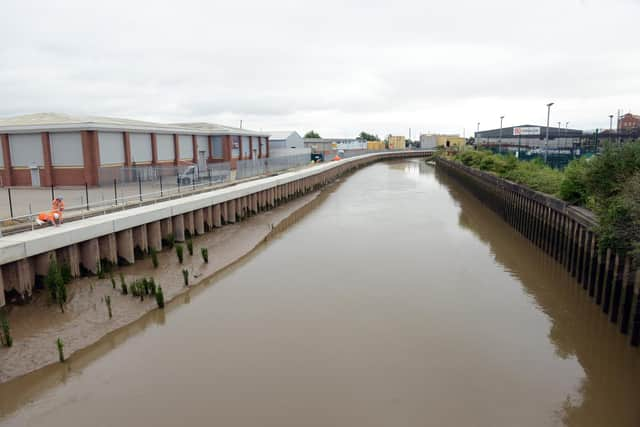Why we need to learn to live with flooding risks and become more resilient - Dr Stuart McLelland
The challenges presented by water out of place, particularly in coastal and estuarine regions are increasing. Sea levels are rising, 30-40 per cent of the global population lives within 100km of the sea and according to the IPCC extreme storm surges from the sea that used to occur infrequently could strike every year on many low-lying coasts by 2050.
Today, we’re facing significant challenges from flood risk and, as our climate changes, the lives of many more people will be impacted by water.
Advertisement
Hide AdAdvertisement
Hide AdHow do we work with and engage people and communities to change how they live with water? This is the question being asked at this month’s United Nations 2023 Water Conference in New York. The event’s purpose is “uniting the world for water” and when colleagues and I attend this UN event to highlight research at the University of Hull, we can share our expertise and help to make a difference. We, as a society, cannot prevent floods, droughts, or shocks that occur in our water system. The risk of flooding from the sea, rainwater, rivers and groundwater are all rising, and it isn’t possible to avoid or remove those risks. Instead, we need to learn to manage and, where possible, mitigate these risks. This is why our research is important. We have turned our own campus into a living lab to map sustainable drainage. Our SuDSLab programme has placed sensors at key locations around our campus to measure how water flows and where water is stored.


With the data collected by these monitors, we are developing a better understanding of how to control flooding, by storing water more effectively to help reduce the risk of floodwater damaging our infrastructure and local communities.
This work isn’t just for home as well. Internationally, our academics are studying how Vietnam’s Mekong Delta is changing as, locally, sand is extracted from its banks and, globally, sea levels rise. We also use experimental models of rivers to understand how river channels change in response to floods so we can help improve global models of flood risk.
However, technology alone isn’t enough. We also need to work with people and communities to better understand the risks and avoid complacency about our changing relationship with water. This is where ground-breaking new research at the University of Hull is reshaping how we live with water.
Advertisement
Hide AdAdvertisement
Hide AdThe UN 2023 Water Conference makes clear that action on water is already overdue. The University of Hull, which places sustainability and climate resilience at the heart of its vision for a fairer, brighter and carbon-neutral future, is driving practice by collaborating and educating both locally and globally. We are building international collaborations to share best practices to develop more water resilient cities and communities and we are training future experts through education programmes.
On this World Water Day, places at the coastal margin are facing ever greater threats from flooding due to climate change. Future water resilience will be built on technological improvements, adaptation and mitigation and, importantly, learning to live with water and its risks. These actions collectively will make us more resilient in the future.
Dr Stuart McLelland is co-director of the University of Hull’s Energy and Environment Institute.